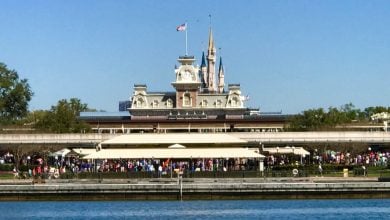Marvel Bombshell: The Version of ‘The Marvels’ We Saw Wasn’t the Original Film
Let’s be real – The Marvels (2023) felt doomed long before it hit theaters.
Despite arriving with a shorter runtime, a smaller ensemble cast, and a story more contained than the sprawling multiversal arcs of recent years, the negative sentiment towards Captain Marvel star Brie Larson in a certain portion of the Marvel fandom was hard to ignore.

Coupled with growing signs of superhero fatigue, the film’s underperformance was perhaps not unexpected, even if, by some measures, it stood out as one of the franchise’s more accessible and entertaining efforts.
Nearly two years later, the film’s director, Nia DaCosta, has addressed the film’s issues, offering an explanation as to where it all went wrong…
A Difficult Launch for a Shifting Franchise
Starring Carol Danvers (Brie Larson), Kamala Khan (Iman Vellani), and Monica Rambeau (Teyonah Parris), The Marvels brought together three characters from different corners of the MCU. While the film attempted to strike a playful tone, its promotional rollout failed to generate momentum. The first trailer was met with muted reaction, and social media buzz quickly gave way to skepticism.
The timing did not help. Marvel was contending with waning interest in its post-Endgame era. Television tie-ins like Secret Invasion had received poor reviews, and theatrical releases were no longer guaranteed successes. When The Marvels debuted to $46 million domestically, it marked the lowest opening weekend in the studio’s history.

The film ultimately earned just over $200 million globally—well below its break-even threshold once production and marketing costs were factored in. International markets reflected a similar trend. In France, the film reportedly sold fewer than 50,000 tickets on opening day.
Critical response was mixed. While The Hollywood Reporter noted director Nia DaCosta’s “kinetic” approach, other outlets were less generous. Christy Lemire of RogerEbert.com awarded the film 1.5 stars, calling it “terrible” and “the worst film yet in the Marvel Cinematic Universe.”
“Not the Movie That I Pitched”
In a recent appearance at Dublin’s second annual screenwriting festival, DaCosta addressed the film’s reception and spoke candidly about the production process.
“There was a certain point when I was like, ‘Ok, this isn’t going to be the movie that I pitched or even the first version of the movie that I shot’ so I realized that this is now an experience and it’s a learning curve and it really makes you stronger as a filmmaker in terms of your ability to navigate,” DaCosta said.

She also described the studio’s production timeline as rigid. “They had a date, and they were prepping certain things, and you just have to lean into the process hardcore,” she said. “The way they make those films is very different to the way, ideally, I would make a film, so you just have to lean into the process and hope for the best. The best didn’t happen this time, but you kind of have to trust in the machine.”
Asked whether she would return to the franchise, DaCosta replied, “I wouldn’t necessarily work with Marvel again,” though she did not close the door entirely.
Her remarks add to a growing conversation about Marvel’s production structure, particularly as the studio expands its slate across theatrical and streaming platforms. DaCosta is one of several directors who have described working with the studio as creatively restrictive.
Online Backlash and an Uncertain Future
The response to The Marvels also reflected a broader and more troubling trend: persistent online backlash against Captain Marvel herself, Brie Larson. Since the release of Captain Marvel (2019), the actress has been the subject of coordinated online campaigns criticizing both her public statements and her role within the franchise.
Larson’s calls for more inclusive media representation drew strong reactions in certain fan communities, and those critiques frequently followed her into the promotion of The Marvels. The film’s reception at times appeared shaped as much by discourse around Larson’s public persona as by the film itself.

In interviews, Larson has addressed the criticism with restraint. When asked if she planned to return as Carol Danvers, she replied, “I don’t know. Does anyone want me to do it again?”
While her future in the MCU remains uncertain, Iman Vellani emerged from the film as a standout. Her performance as Kamala Khan was praised by critics and audiences alike, and she is widely expected to return in a future Young Avengers project, though Marvel has yet to announce such a title formally.
Teyonah Parris’ Monica Rambeau also remains a character with open narrative threads. The film concluded with her stranded in a parallel universe, suggesting a potential reappearance in the studio’s ongoing multiverse storylines.

As Marvel looks ahead to Avengers: Doomsday (2026), a title for which Larson is not currently listed among the extensive superhero lineup, the studio may be recalibrating its strategy. Whether that recalibration includes a return for Captain Marvel remains to be seen.
Why do you think The Marvels flopped?




